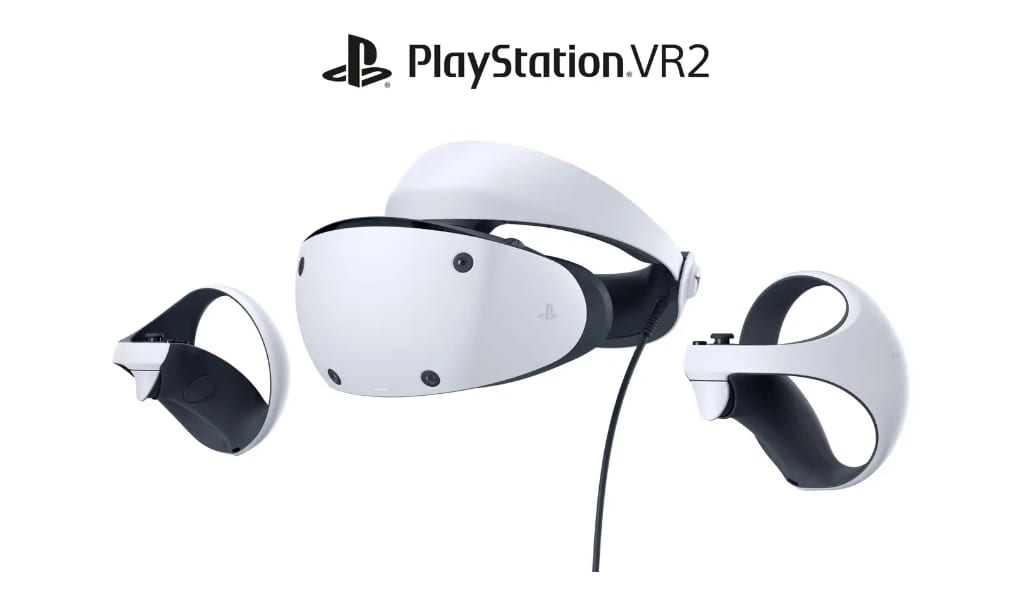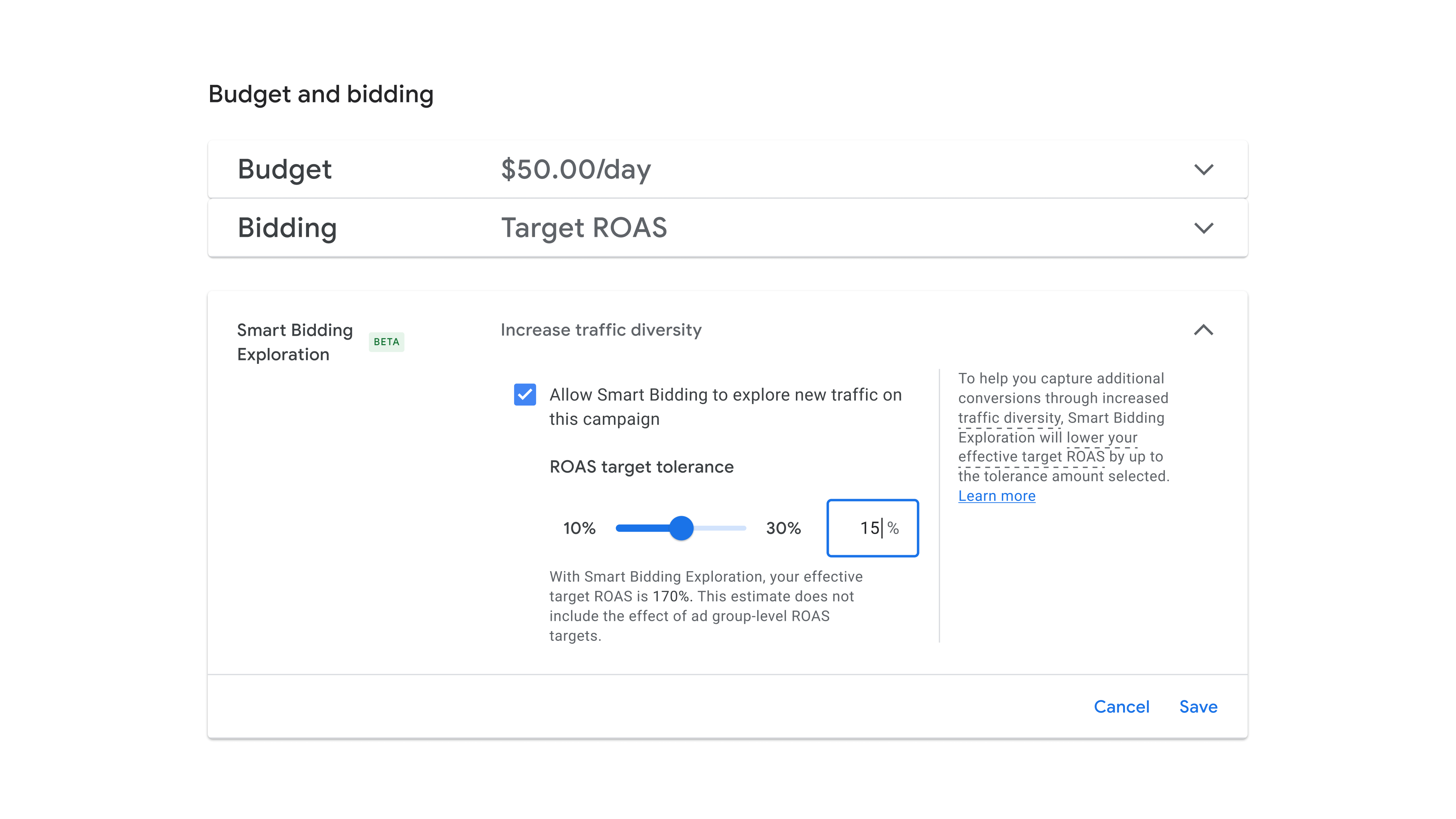Best GPU deals for January 2023
No matter your budget or what sort of PC you're building, we've got the hottest cheap GPU deals right here.
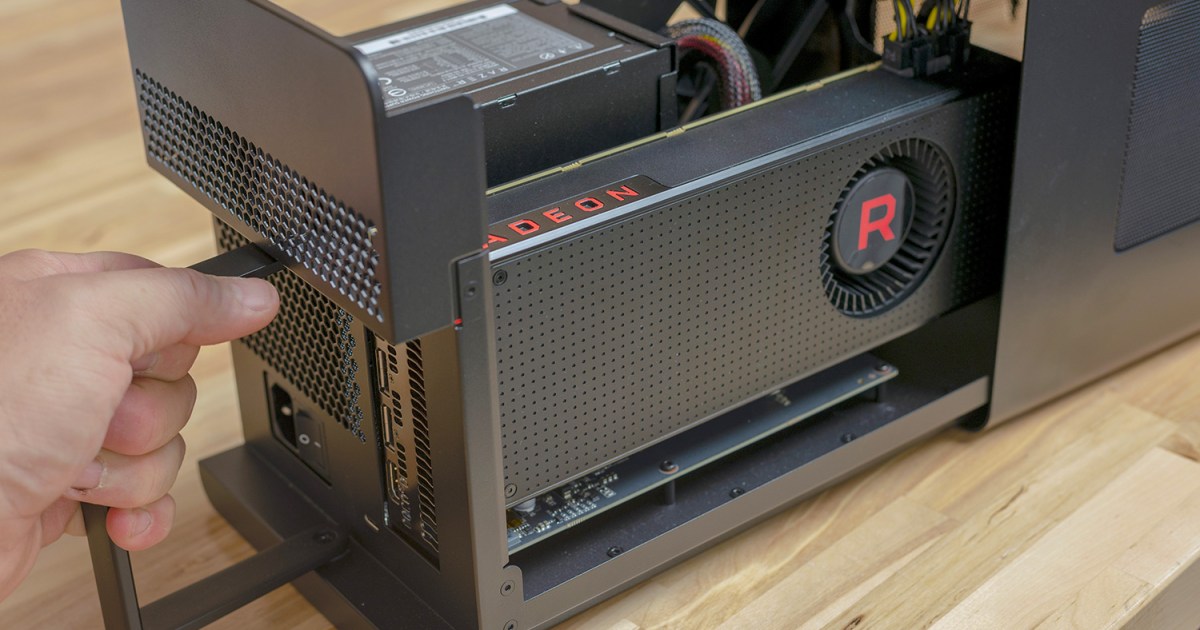
If you’re building or upgrading a desktop PC, you’ve probably noticed by now that graphics cards have been scarce (which is to say, expensive) over the last few years thanks to supply chain problems and pent-up buyer demand. Things are improving, though, and there are some good GPU deals popping up online if you’ve got a sharp eye and quick fingers. We can make your search a little easier: Below, we’ve sniffed out the best GPU deals that are currently available, along with a short buying guide. Bear in mind, that in this market, shopping for a pre-built desktop might be a better choice depending on how old your existing rig is — and if that’s the route you want to take, be sure to check out these gaming PC deals.
Today’s best GPU deals
Asus GeForce RTX 2060 OC with 6GB GDDR6 — $280, was $350
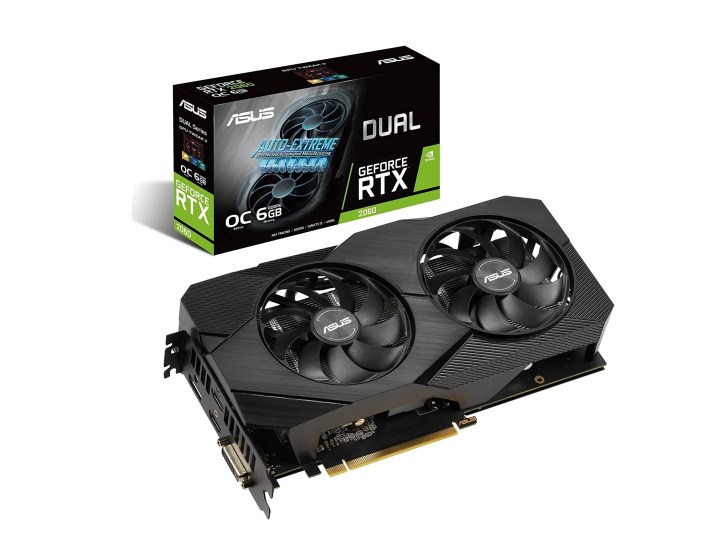
If you want to see how this card’s specs and performance line up against the previous generation models, check out the Nvidia GTX 1660 Ti vs. RTX 2060 comparison. Otherwise, this little guy packs a lot of punch with 6GB of GDDR6 dedicated VRAM, dual cooling fans, and a VR-ready design. GPU clock speeds are rated at 1,785 MHz, and it supports up to four monitors with DisplayPort 1.4, HDMI 2.0, and DVI ports available to use. Asus GPU Tweak II software makes it easy to monitor and streamline performance through personalized settings. This is a great-value card for 4K streaming and HD gaming at stable framerates.
EVGA GeForce RTX 2060 KO Ultra Gaming with 6GB GDDR6 — $280, was $350

This RTX 2060 KO Ultra Gaming from EVGA delivers a sleek design with dual fans, plenty of cooling, and solid performance. The real boost clock is rated at 1,680 MHz with 6GB of GDDR6 dedicated VRAM available. It offers real-time Ray Tracing for hyper-realistic graphics in compatible games and supports up to three monitors — via DVI, HDMI 2.0, and DisplayPort 1.4. The all-metal pre-installed EVGA precision X1 backplate takes the design, and performance, up a notch.
Zotac GeForce RTX 3050 Twin Edge OC with 8GB GDDR6 — $300, was $330
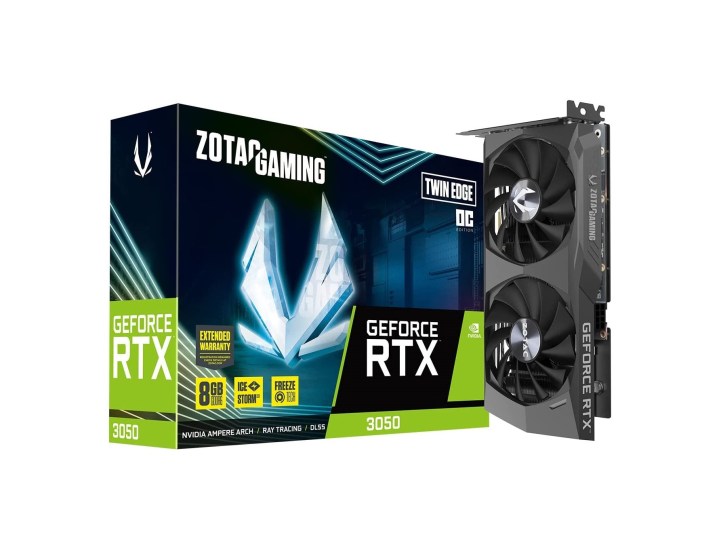
This 8K-ready card utilizes 2nd gen Ray Tracing cores, with 8GB of 128-bit GDDR6 dedicated VRAM running at 14 Gbps in a PCIe 4.0 slot. What does that mean? Excellent performance, 4K resolution gaming, high framerates, and stunning, hyper-realistic Nvidia tech — ray tracing looks fantastic. What is ray tracing? Reference our guide. You can also see a list of all ray tracing games on PC. More about this card, it supports up to four monitors, with three DisplayPort 1.4a ports, and an HDMI 2.1 output. Boost clock speeds are 1,807 MHz for those wanting to know.
MSI GeForce RTX 3060 Ventus 3X with 12GB GDDR6 — $380, was $480
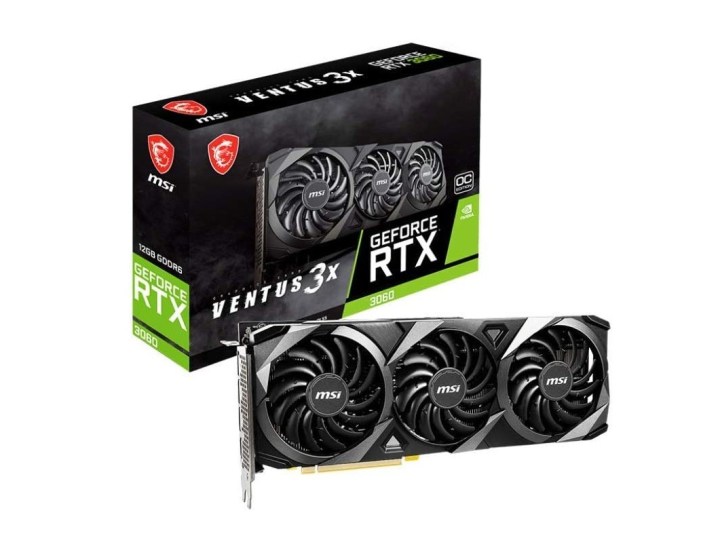
For just a little more, you can grab this 12GB GDDR6 card, at 192-bit, with DLSS AI acceleration and ray tracing support for hyper-realistic, fluid motion, and immersive visuals. The triple fan cooling system keeps it running at optimal temperatures even under a heavy load. Meanwhile, you get three DisplayPort 1.4a ports plus an HDMI 2.1. The clock speed is 1,710 MHz.
Zotac GeForce RTX 3090 Trinity OC with 24GB GDDR6X — $1,390, was $2,400
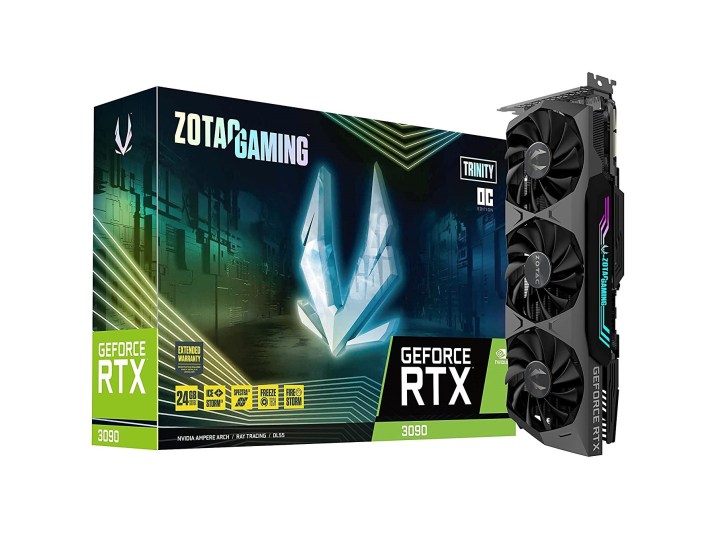
Go big or go home. That’s certainly the idea here with 24GB of GDDR6X dedicated VRAM at 384 bits and with speeds up to 19.5Gbps. That’s really, really fast and powerful. Plus, you get clock speeds of 1,710 MHz, advanced cooling and metal front plate, a lighted backplate, and full ray tracing support. It’s also 8K-ready, supporting four displays, with HDCP 2.3, VR compatibility, three DisplayPort 1.4a ports, and an HDMI 2.1 output. If you grab this thing you’ll be ready to run any game you throw at it, at max settings, with incredible framerates and performance.
How to choose a GPU
The cryptocurrency mining boom caused a crisis in GPU availability for several years (video cards being necessary to mine things like Bitcoin) causing prices to skyrocket, and if you remember that, then you know it was a dark time for PC builders for awhile. Thankfully, things have stabilized in recent years; on top of that, there are now plenty of surprisingly cheap GPUs that make 1080p/60 fps PC gaming more accessible than ever — and if you want to get into 1440p Quad HD or 4K Ultra HD gaming, you’ve got more than a few options there, too.
When shopping for GPU deals, the two big names you’re going to see are AMD Radeon and Nvidia GeForce. These are often sold under different brand names (such as XFX, MSI, Asus, and so on), but the GPU hardware itself — that is, the stuff that actually does the heavy lifting when it comes to graphics processing — is pretty much the same. The differences between card manufacturers will come down to details like heat sink efficiency and cooling capabilities. Be sure to read plenty of customer reviews, but generally speaking, you’re in safe waters sticking with a highly rated card from a reputable maker.
As far as choosing between AMD and Nvidia, you can’t really go wrong with either. Both companies make great graphics cards, and today, you can find cheap GPUs from either one that are capable of running modern games at 1080p resolution and 60 frames per second (the standard for PC gaming). AMD Radeon cards are typically touted as the superior value, but Nvidia cards aren’t typically priced much higher and GPU deals mean you can often find the latest GeForce video cards for the same price you’d pay for an equivalent Radeon GPU. Also, don’t assume that because you have an AMD CPU that you need an AMD GPU. AMD CPUs pair perfectly well with Nvidia video cards.
Of all PC components, graphics cards cover perhaps the widest range of capabilities and price points. The AMD Radeon RX 500-series and 5500 cards deliver excellent 1080p performance and are a great value. In the same bracket are the Nvidia GeForce GTX 16-series cards (1650, 1650 Super, 1660, 1660 Ti, etc.). Expect to pay around $150-$250 for a cheap GPU in this category. On the higher end of the spectrum are the AMD Radeon RX 5000- and 6000-series cards and the Nvidia GeForce RTX 20-series and 30-series cards. These are naturally pricier, but are a better choice for enthusiast PC builds where 1440p or 4K gaming are a priority. We generally advise against the last-generation Nvidia GTX 10-series cards unless your budget is tight and you find a really good GPU deal on one.
One final consideration (but one that’s no less important for a gaming PC setup) is your monitor. A proper gaming monitor will have built-in vertical sync technology — either AMD FreeSync and Nvidia G-Sync — that’s made to work with one of the two GPU brands. Generally speaking, a FreeSync monitor is made for AMD cards while G-Sync monitors work best with Nvidia cards, but this isn’t a hard rule. Nvidia has been offering more cross-compatibility support for its cards lately, and many FreeSync monitors work fine with Nvidia GPUs (although you may have to use a DisplayPort cable instead of HDMI for the best results, so make sure your monitor supports that). Again, be sure to do your research when shopping for monitor deals to ensure your display is fully compatible with your GPU and vice-versa.
Looking for more great stuff? Find tech discounts and much more on our curated deals page.

Today's tech news, curated and condensed for your inbox
Check your inbox!
Please provide a valid email address to continue.
This email address is currently on file. If you are not receiving newsletters, please check your spam folder.
Sorry, an error occurred during subscription. Please try again later.

 Fransebas
Fransebas 









